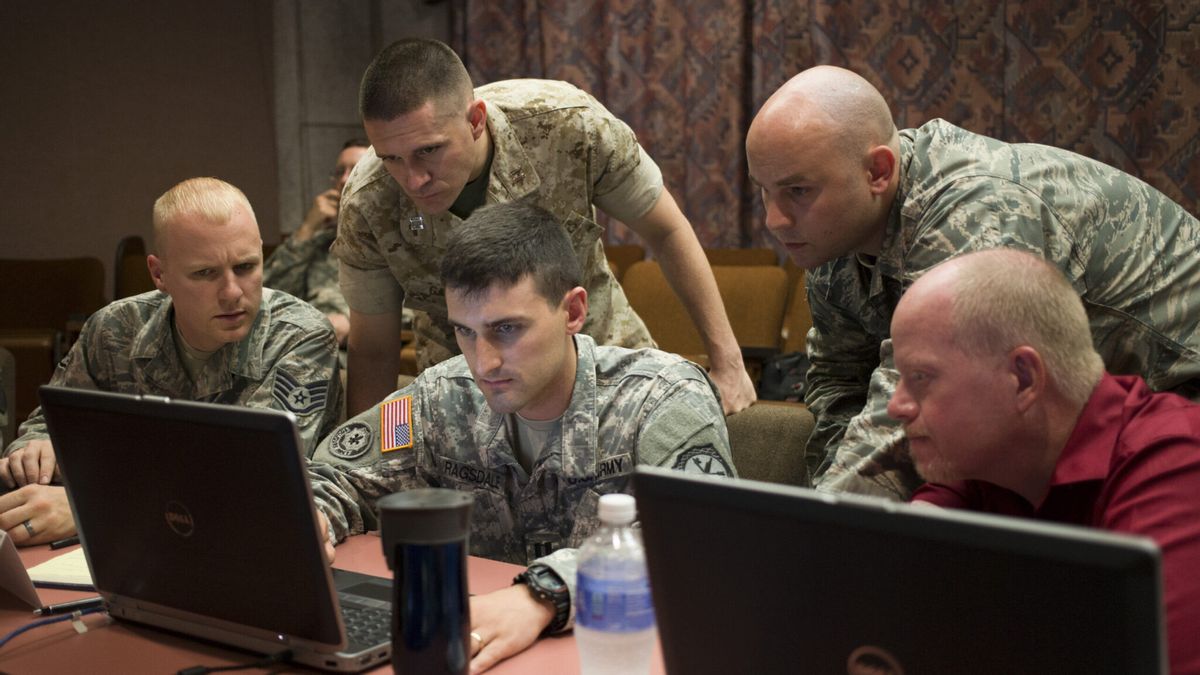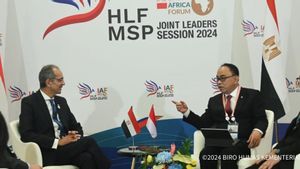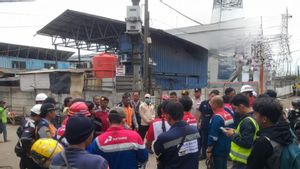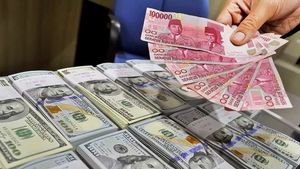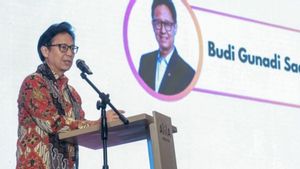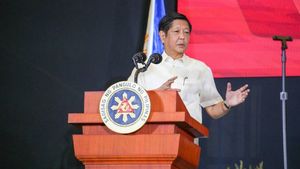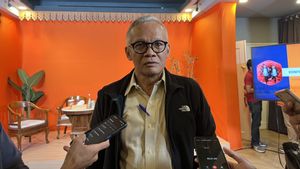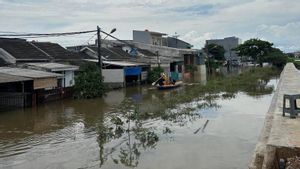JAKARTA - TNI Commander General Agus Subiyanto admitted that the TNI had received orders from President Joko Widodo to form the Cyber Force as the fourth dimension in the TNI institution. The order was conveyed by President Joko Widodo and also by the MPR during a state speech last August.
This was conveyed again by Agus after attending a working meeting with Commission I of the DPR RI at the Parliament Complex, Jakarta, on Tuesday, September 3.
General Agus stated that currently the TNI already has a cyber unit, but it is still on a limited scale and relies heavily on the capabilities of existing human resources. The Indonesian National Army Cyber Unit itself was discussed in 2017. However, this is only a special task force in the Indonesian Army.
The TNI plans to build a cyber center in the Headquarters (Mabes) and in each TNI dimension. Recruitment of personnel for this unit will prioritize high school graduates and universities with expertise in cyberspace.
"Indeed, if cyber is different from other units, maybe there will be more civilians," Agus said, stressing that cyber units will be mostly filled by civilian personnel who have special expertise in information technology and cybersecurity.
Comparison With Cyber Force In Other Countries
In a global context, cyber force has become an important component in modern military strategies. Dozens of countries in the world have formed specific cyber units responsible for defensive and offensive cyber operations. Several countries that already have cyber force include:
The United States: Has a United States Cyber Command (USCYBERCOM) which is responsible for both defensive and offensive cyber operations. USCYBERCOM plays an important role in protecting critical US infrastructure from cyber threats.
Russia: Russia has cyber units under military and intelligence control, including the GRU (President Intelligence Directorate). This unit is known for its ability to carry out advanced offensive cyber operations.
China: China has a cyber unit in the People's Liberation Army (PLA) that focuses on cyber operations for defense and offensive purposes. China is known for its aggressive approach to cyberspace.
Israel: Israel has Unit 8200, which is a cyber and intelligence unit under the Israeli Defense Force (IDF). This unit is known for its ability to develop advanced cyber technology and intelligence.
Britain: Britain has a National Cyber Force (NCF), a collaboration between the Ministry of Defense and the Government Communications Agency (GCHQ) that focuses on defensive and offensive cyber operations.
South Korea: South Korea has a Cyber Command to deal with cyber threats, especially those from North Korea. This unit has a key role in protecting the country's digital infrastructure.
France: France has a cyber unit operating under Commandement de la Cyberdefense. This unit plays an important role in France's national defense strategy in cyberspace.
India: India is developing a Defense Cyber Agency (DCA), which focuses on increasing the country's cyber capacity in the face of global cyber threats.
Even for Southeast Asia, Indonesia is a bit behind in the formation of this Cyber Force. Southeast Asian countries such as Thailand have even started forming a cyber force in 1994.
The Thai Army Cyber Center began when the Army established an Army Information Center and Operations Center. In 1996, the Thai Army approved the establishment of the Army Military Technology Center.
Then, in 2001, the Army officially announced the establishment of the Army Military Technology Center using special operating code number 2900. May 11, 2001, which is the day of the official announcement, was designated as the day the unit was founded.
SEE ALSO:
On October 1, 2016, the Army changed the status of the Military Technology Center to the Army Cyber Center and placed it directly under the command of the Army.
While Singapore began forming a cyber force in 2022. Singapore officially launched Digital and Intelligence Services (DIS), a new branch of the Singapore Armed Forces (SAF) tasked with providing military intelligence, building the country's digital defense capabilities, and protecting the psychological resilience of its military personnel.
The establishment of this DIS is a response to the increasing attacks from non-state actors and the impact of cyber warfare between Russia and Ukraine. Meanwhile, Malaysia also has a Cyber and Electromagnetic Command, as their cyber force.
The formation of the TNI Cyber Force as the fourth dimension reflects the Indonesian government's awareness of the increasing cyber threats in cyberspace that could threaten national security. This step also places Indonesia on par with other countries that already have special cyber units in their military.
The English, Chinese, Japanese, Arabic, and French versions are automatically generated by the AI. So there may still be inaccuracies in translating, please always see Indonesian as our main language. (system supported by DigitalSiber.id)
